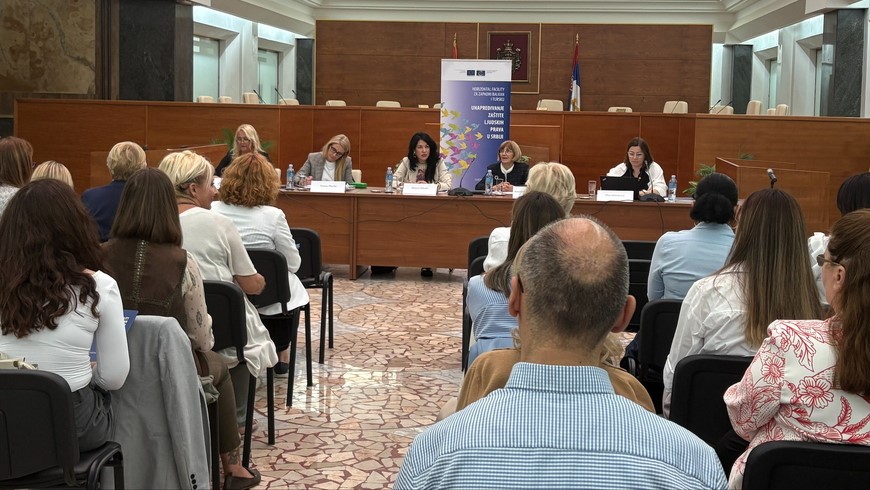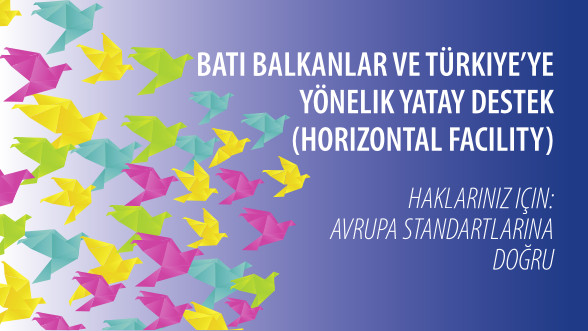How can the relationship between a child and the parent with whom the child does not live be maintained, and how can court decisions in family disputes be enforced without delay? This key question was at the centre of a roundtable that brought together representatives of the Constitutional Court, regular courts, prosecutors’ offices, social welfare centres, and the State Attorney’s Office.
The enforcement of decisions in the field of family relations represents a particularly sensitive and complex area. Problems that arise in this process sometimes lead to violations of the right to family life, guaranteed by Article 8 of the European Convention on Human Rights.
At the roundtable organised on 11 September 2025 in Belgrade by the joint action of the European Union and the Council of Europe “Strengthening human rights protection in Serbia“ and the Constitutional Court of the Republic of Serbia, representatives of all relevant state institutions discussed the challenges each of them faces in their work. Through the exchange of experiences, the aim was to reach conclusions and recommendations on how to improve practice in this area.
As emphasised by Bojana Nikolin, representative of the Council of Europe from the Department for the Execution of Judgments of the European Court of Human Rights (ECtHR), the Court has so far issued around ten judgments against Serbia in this field. The fact that four of those judgments were delivered in the past three years shows that, despite certain reforms and improvements, this issue remains highly relevant. The key point is the efficiency of state authorities in handling such cases, since the passage of time is of critical importance.
Council of Europe consultant and former judge of the Constitutional Court and the Supreme Court of Serbia, Katarina Manojlović Andrić, noted that legal regulation of this issue is very sparse, even though, given the sensitivity and delicacy of such proceedings, one might expect the legislator to devote special attention to it and provide detailed procedural rules.
The roundtable discussion was very dynamic, with particular emphasis on the challenges faced by social welfare centres, primarily due to heavy caseloads and insufficient capacities.
The roundtable was organised within the broader efforts of the action “Strengthening human rights protection in Serbia“ to strengthen the application of the European Convention on Human Rights at the domestic level. The action is part of the joint European Union and Council of Europe programme “Horizontal Facility for the Western Balkans and Türkiye”.



